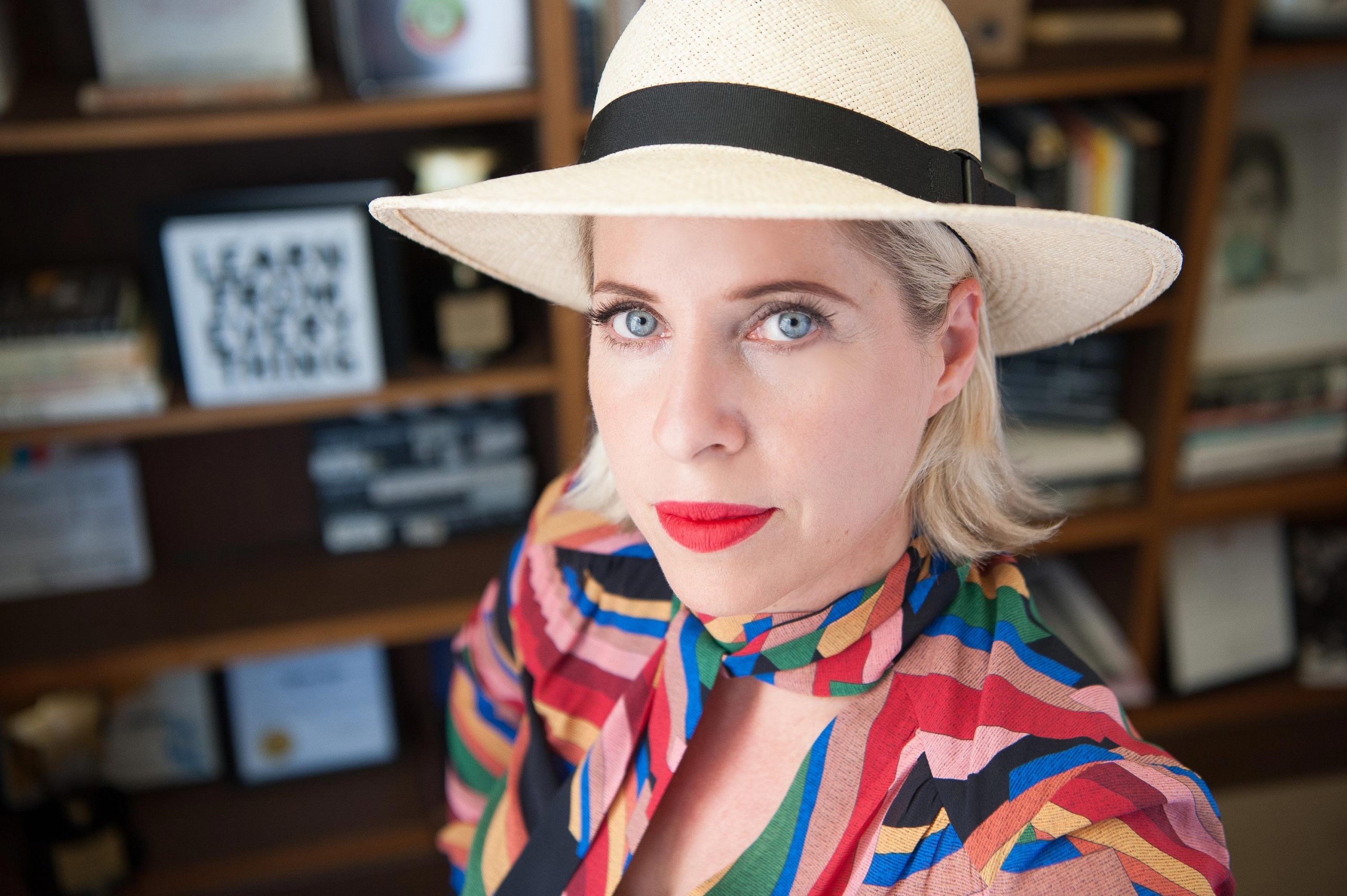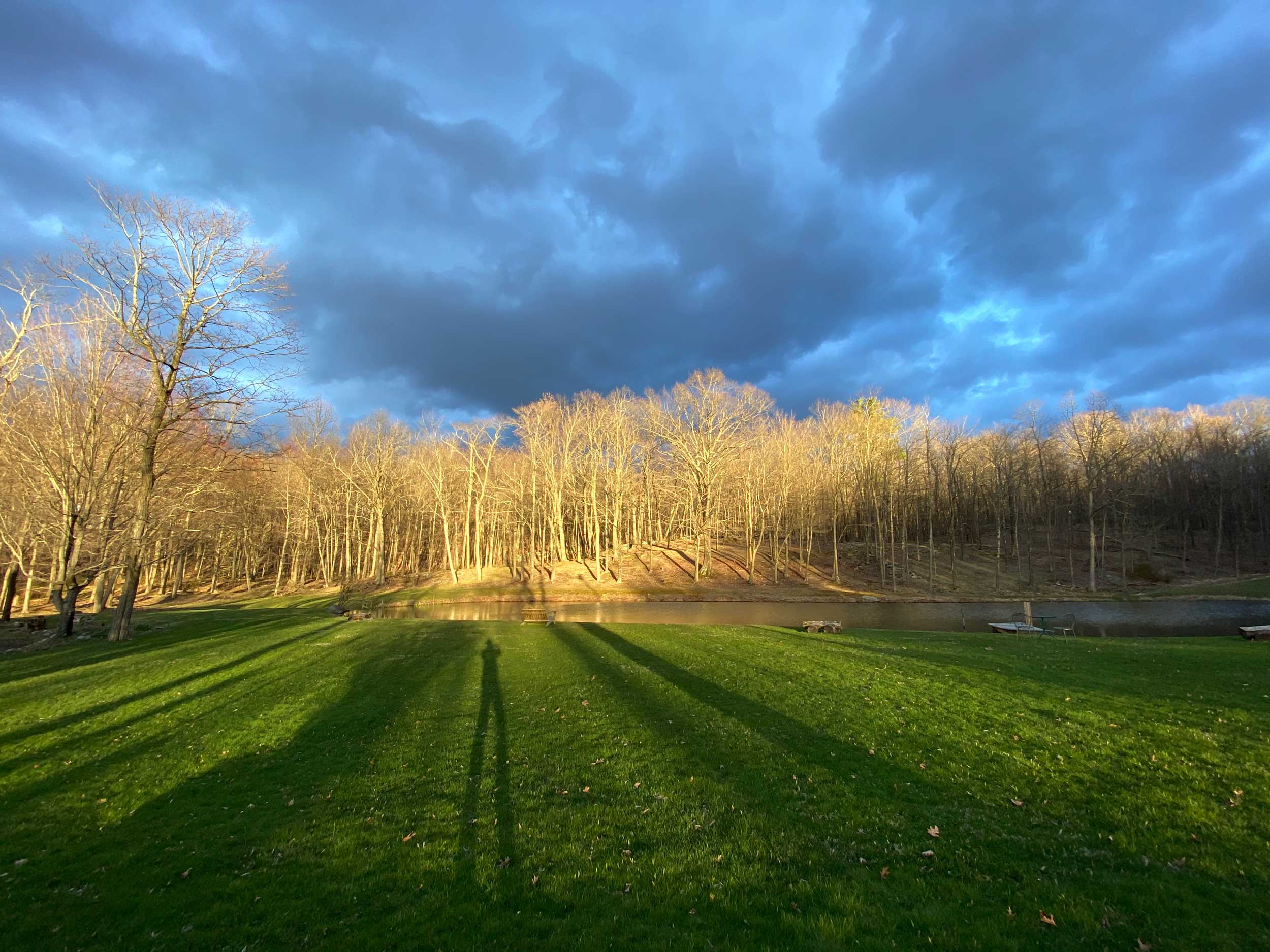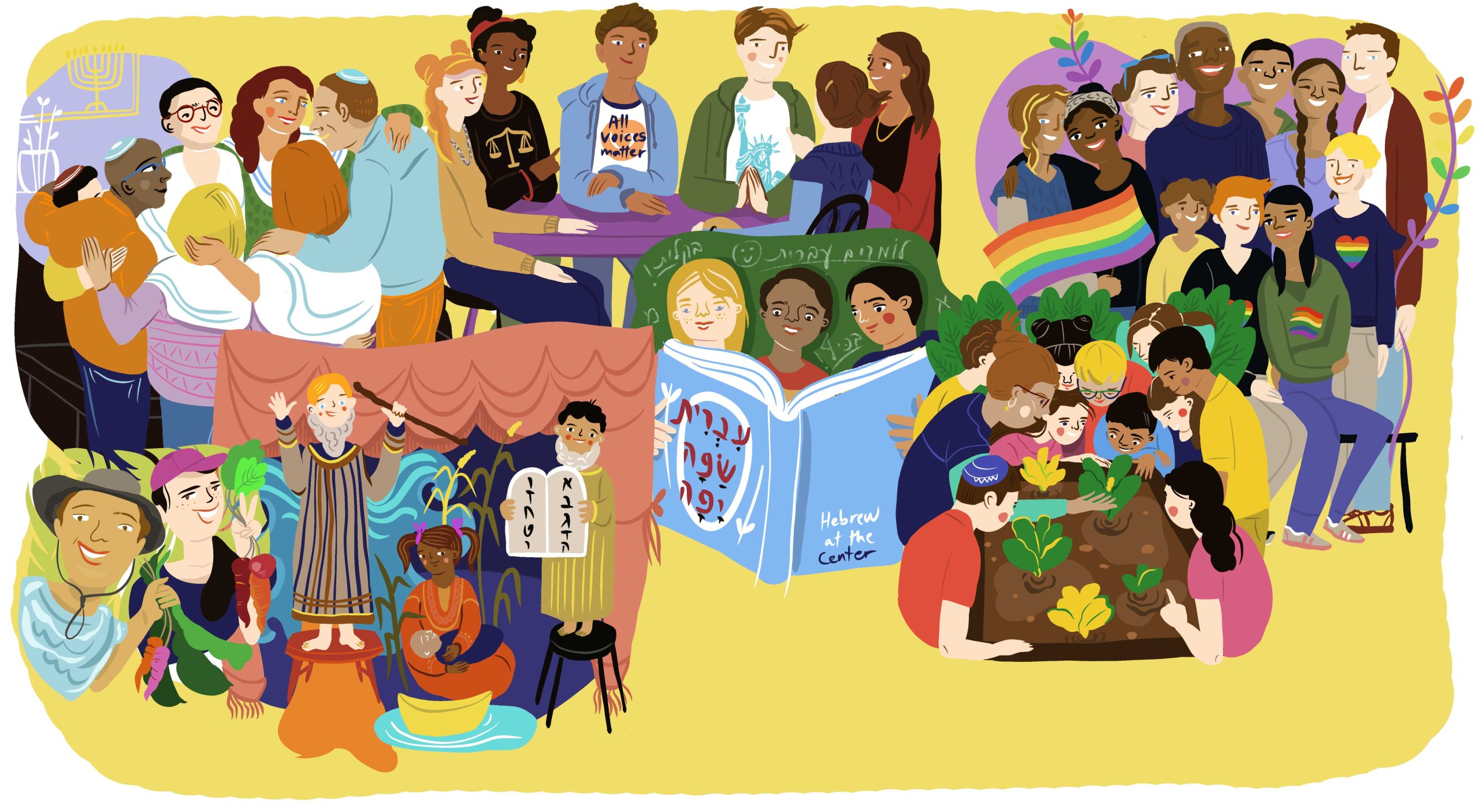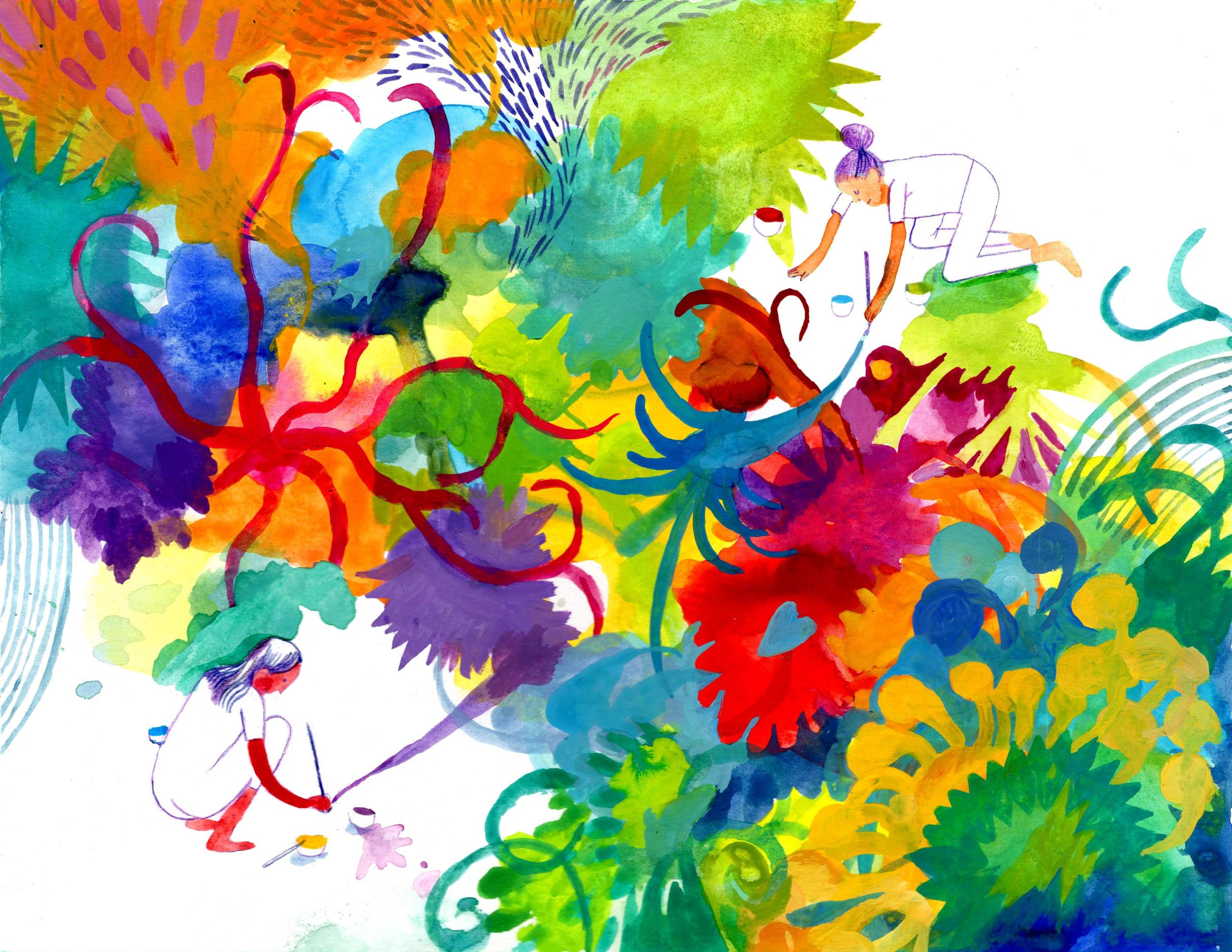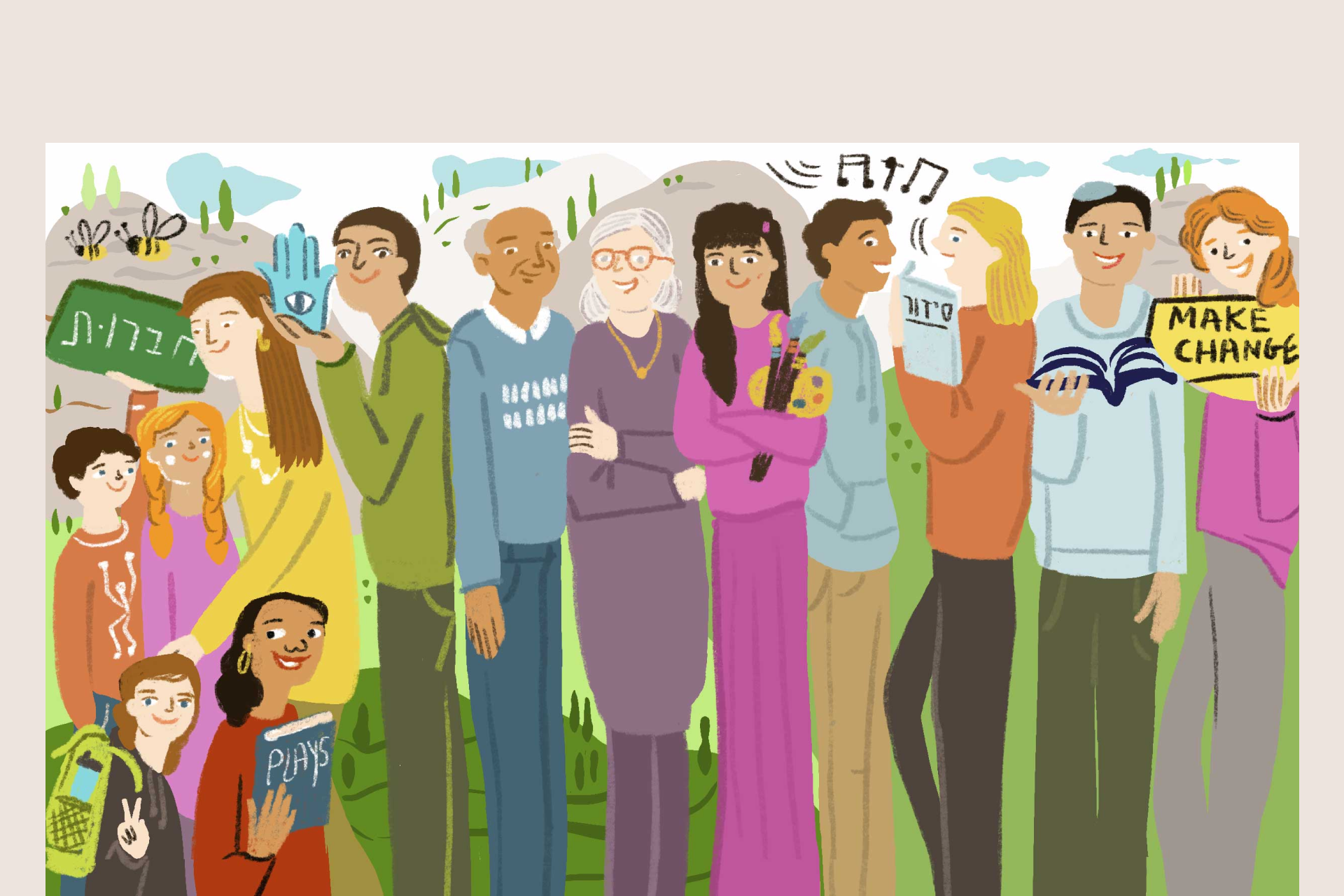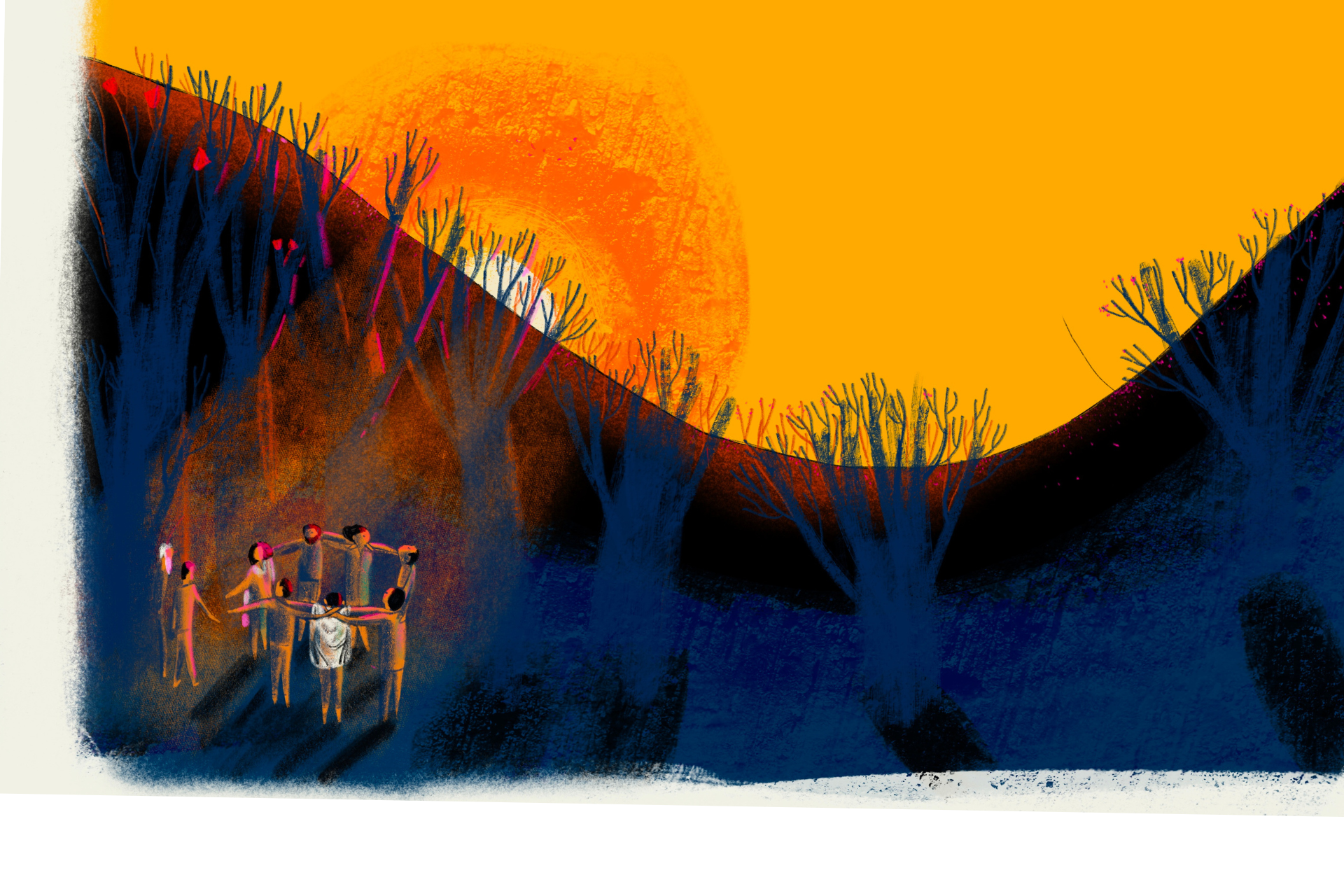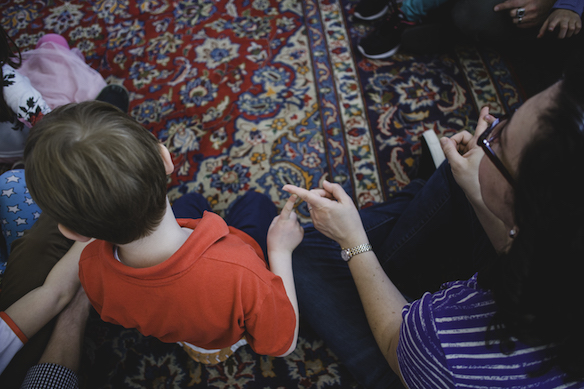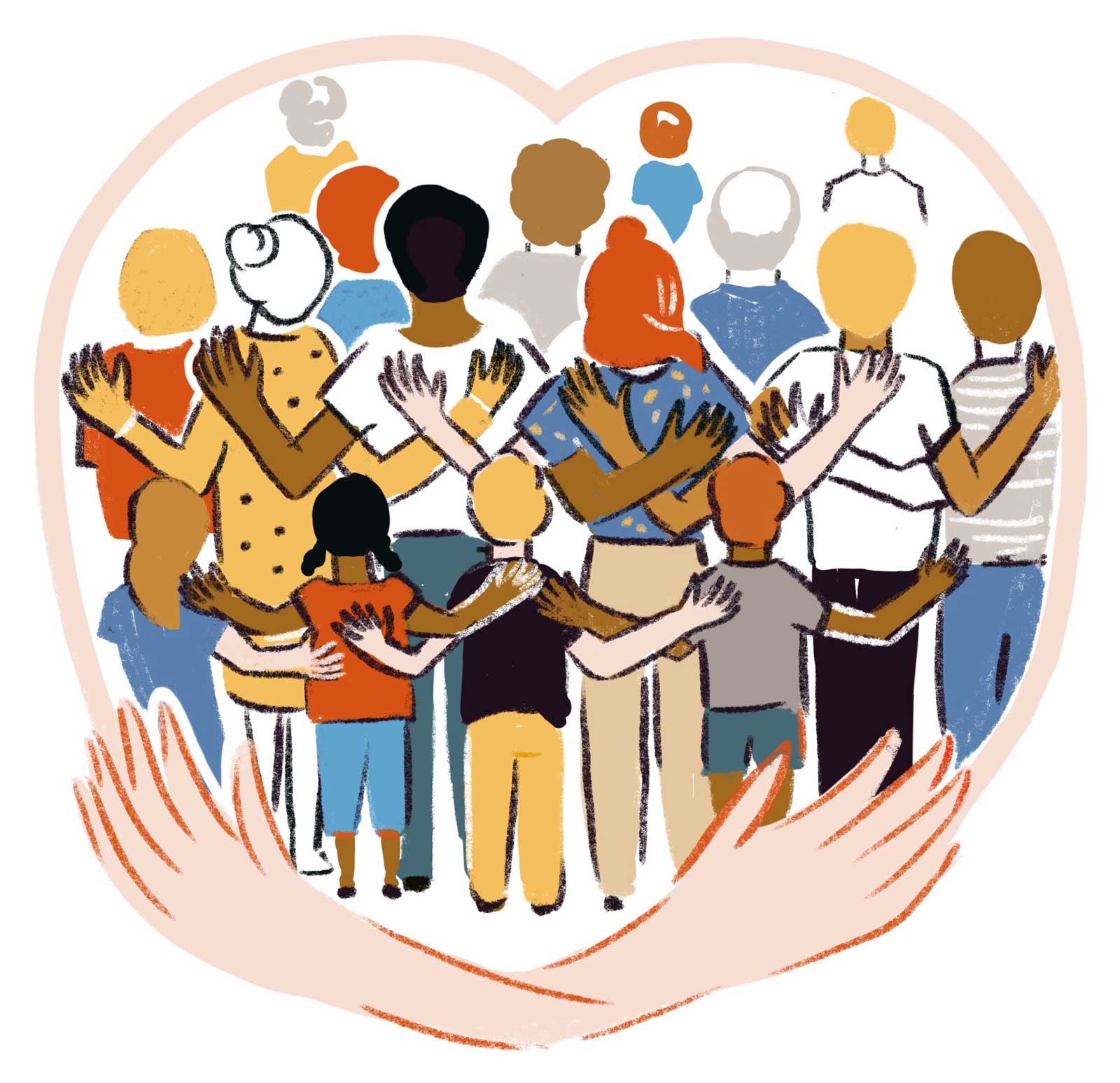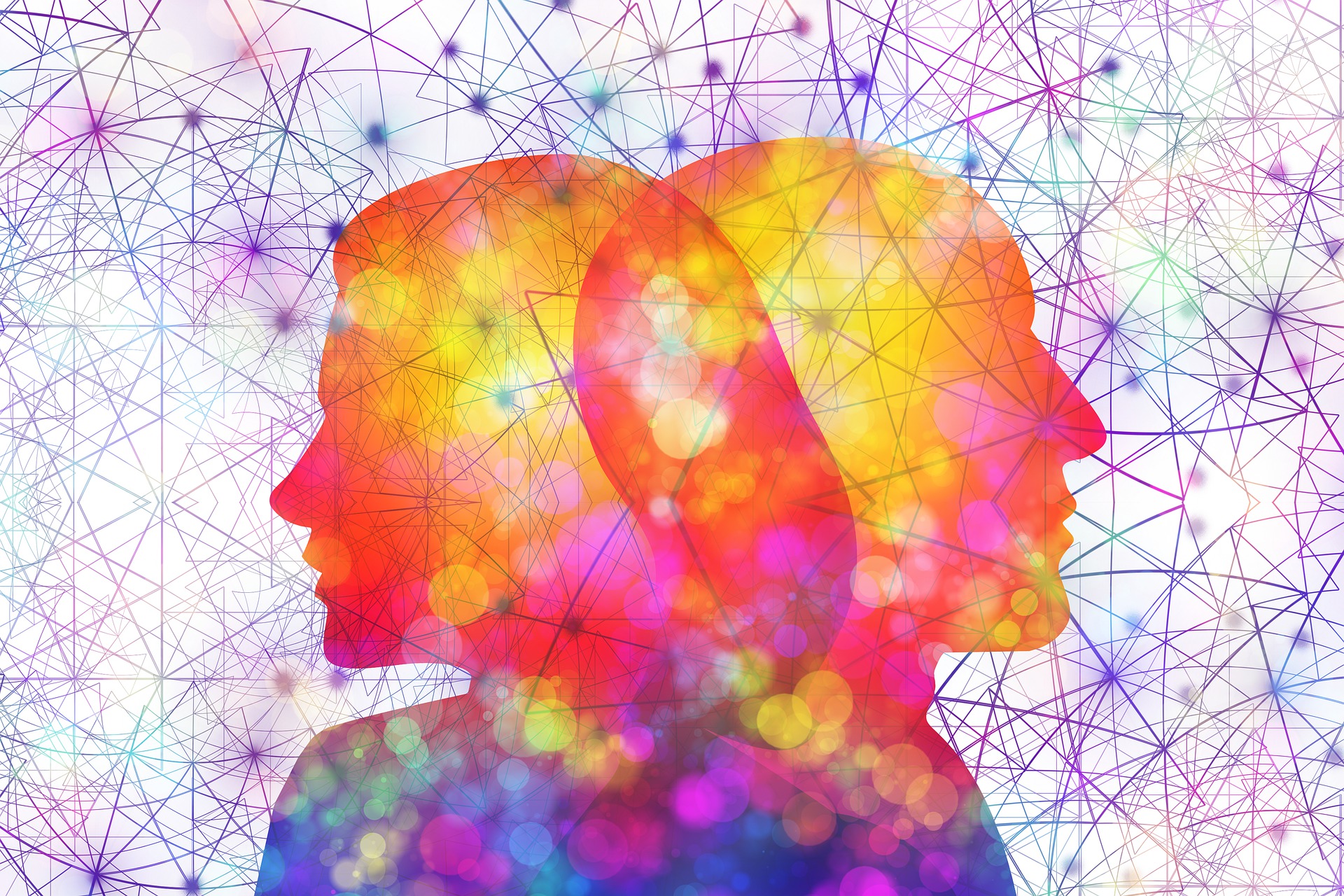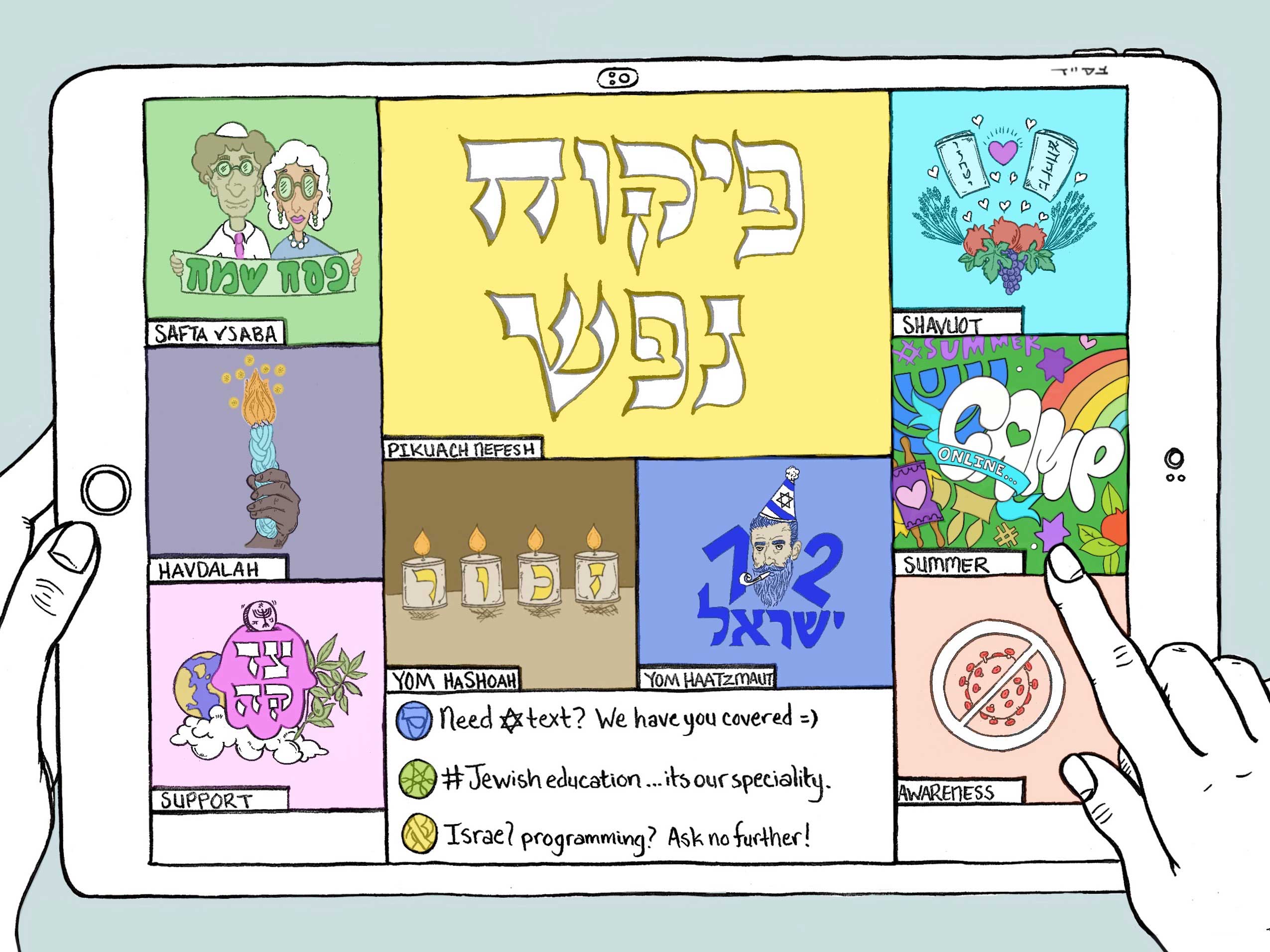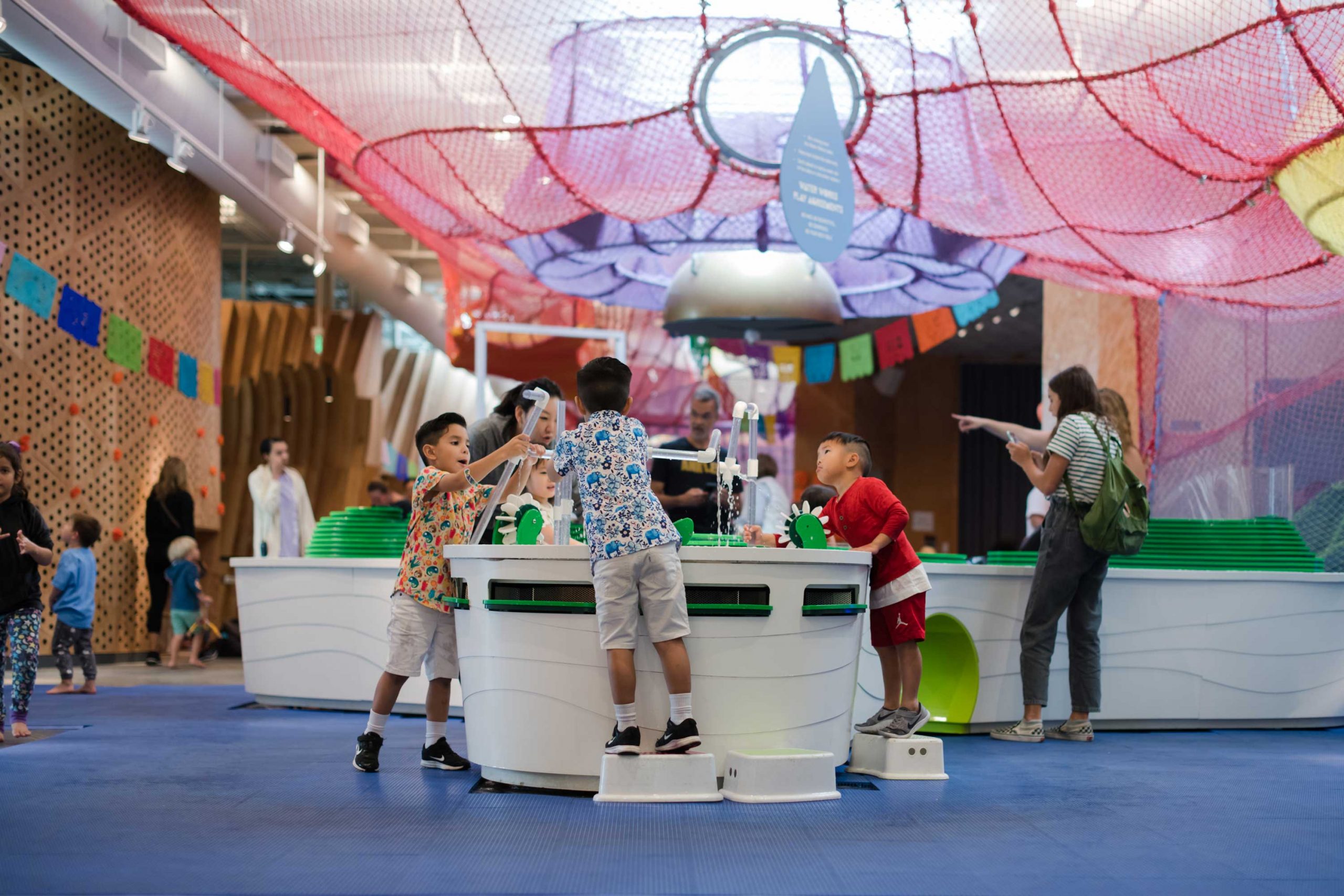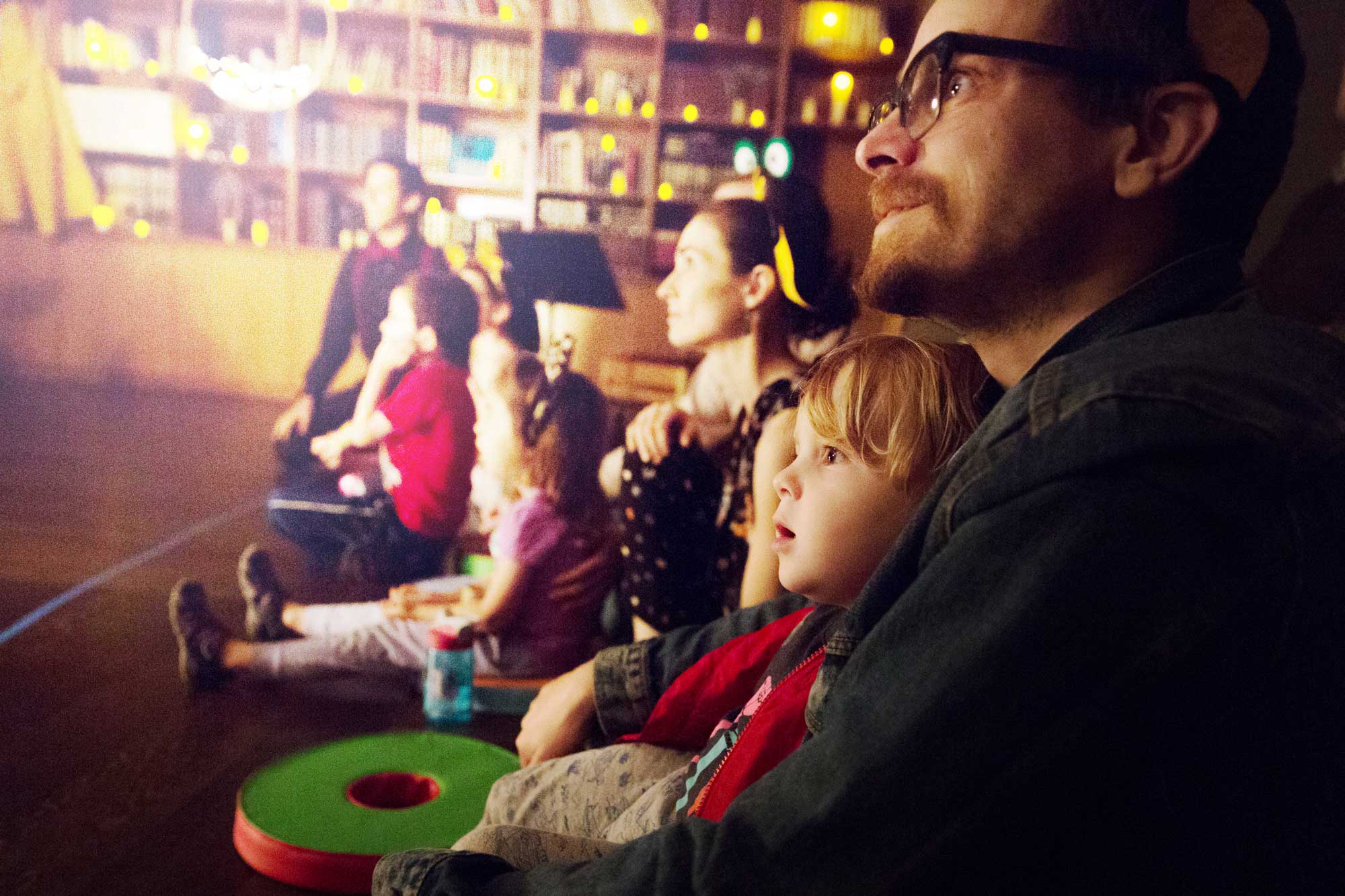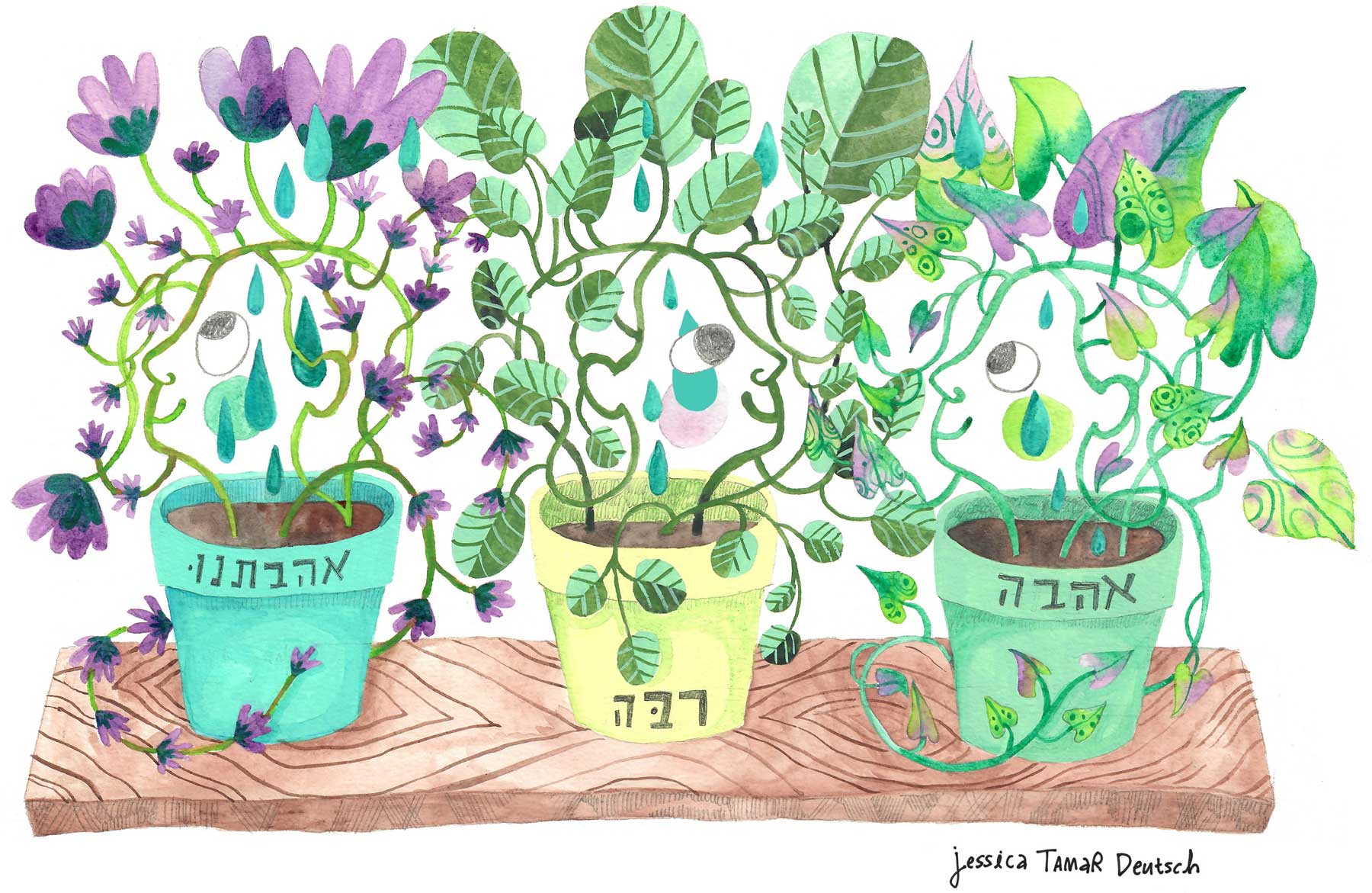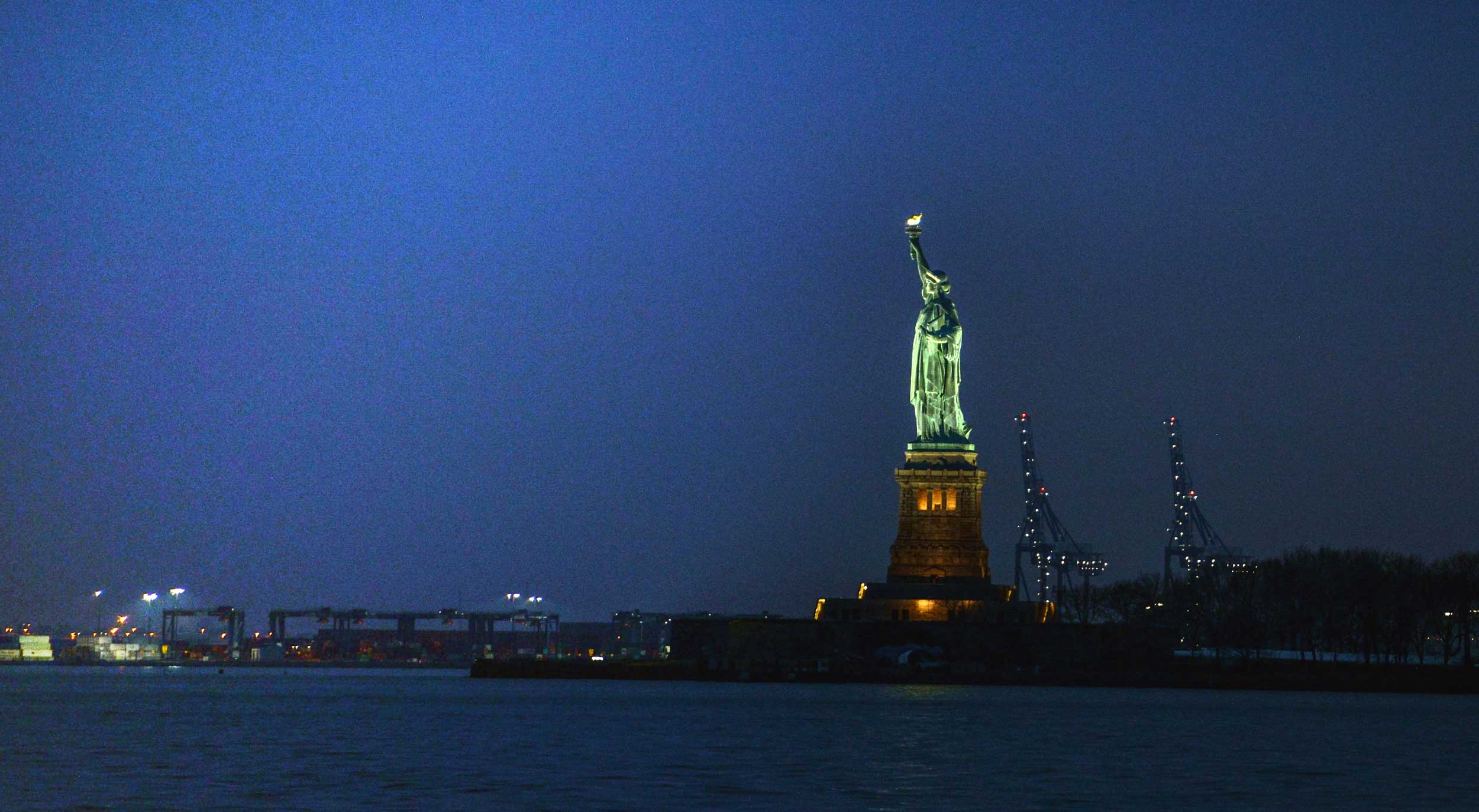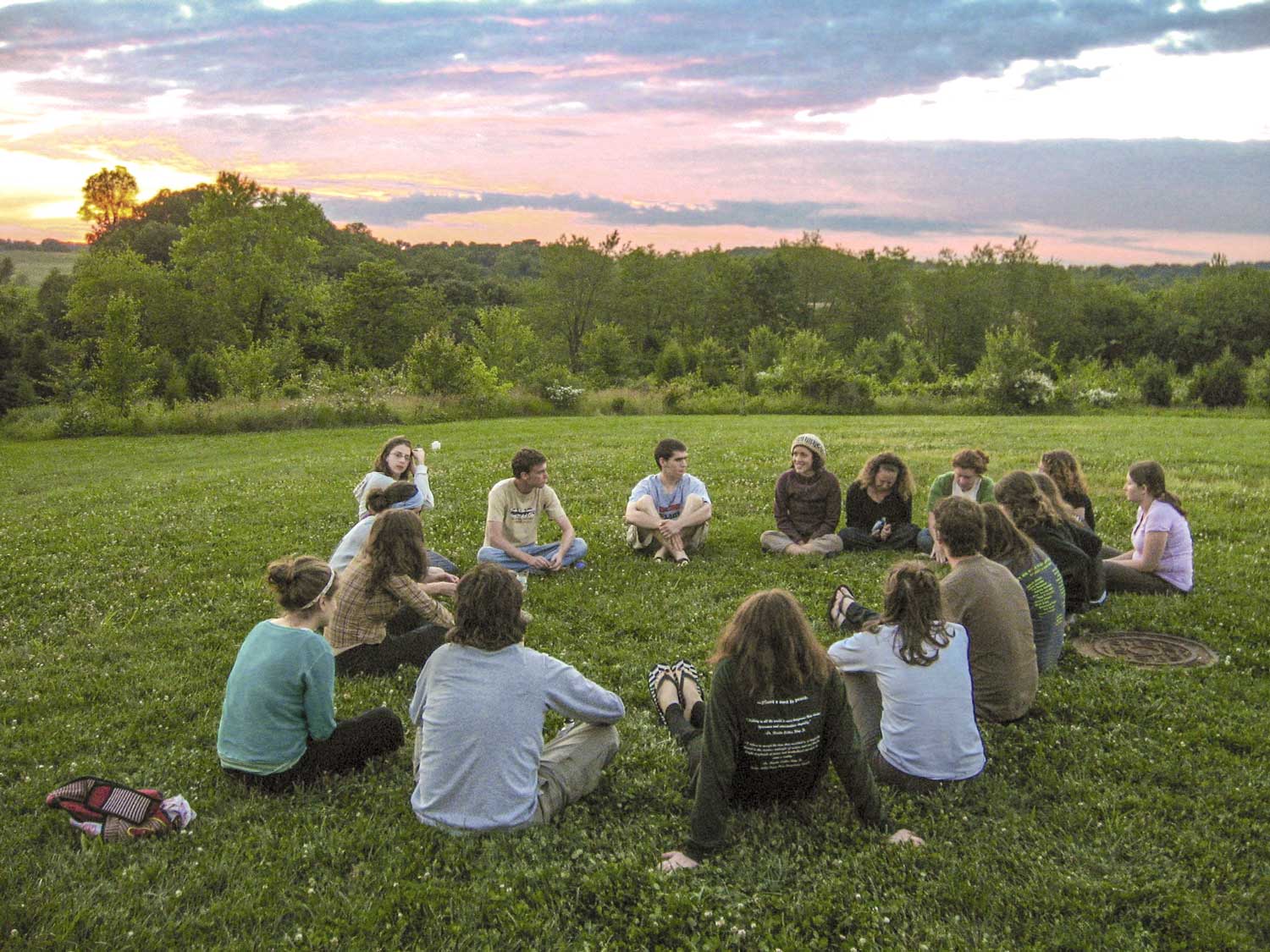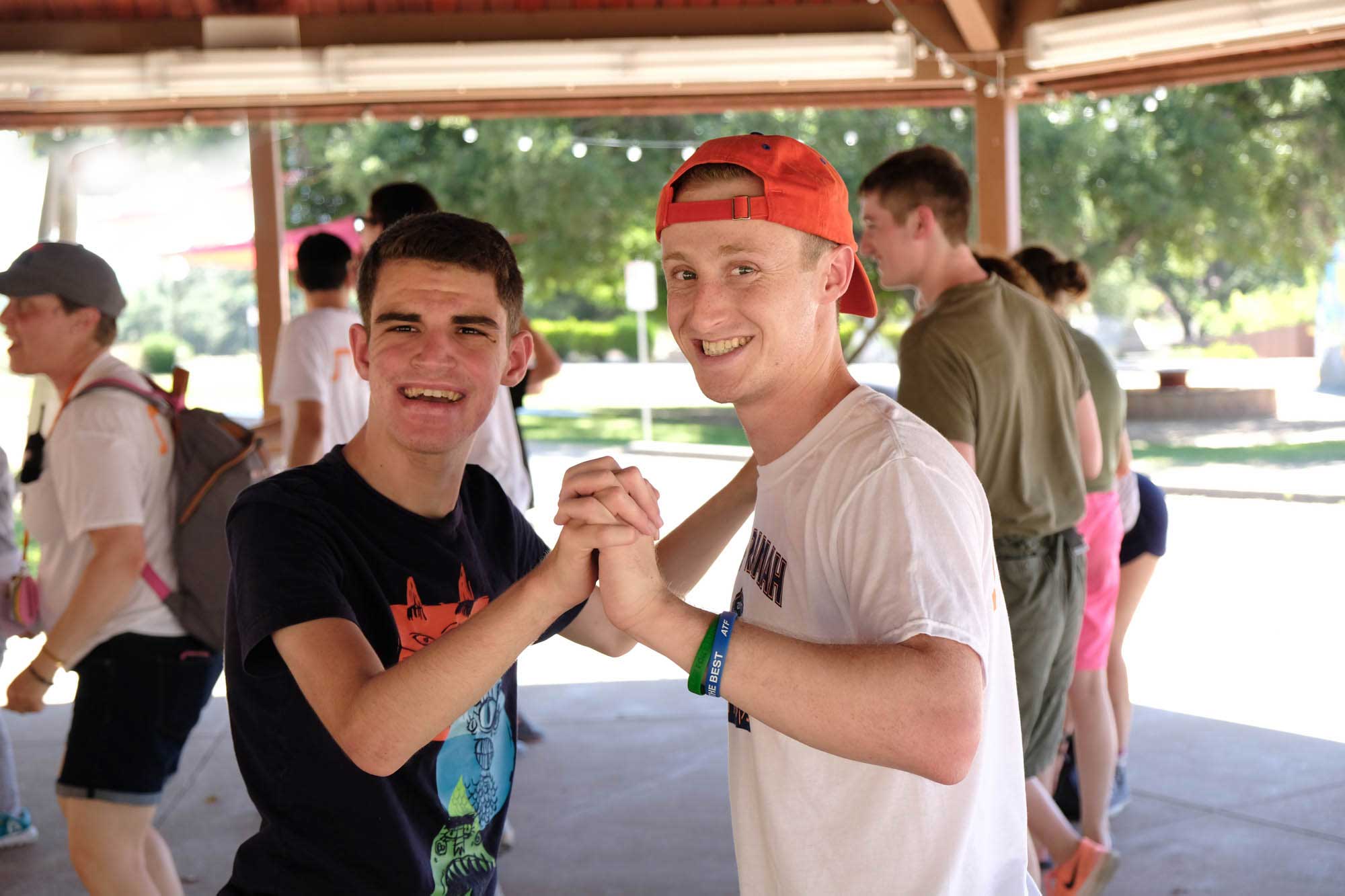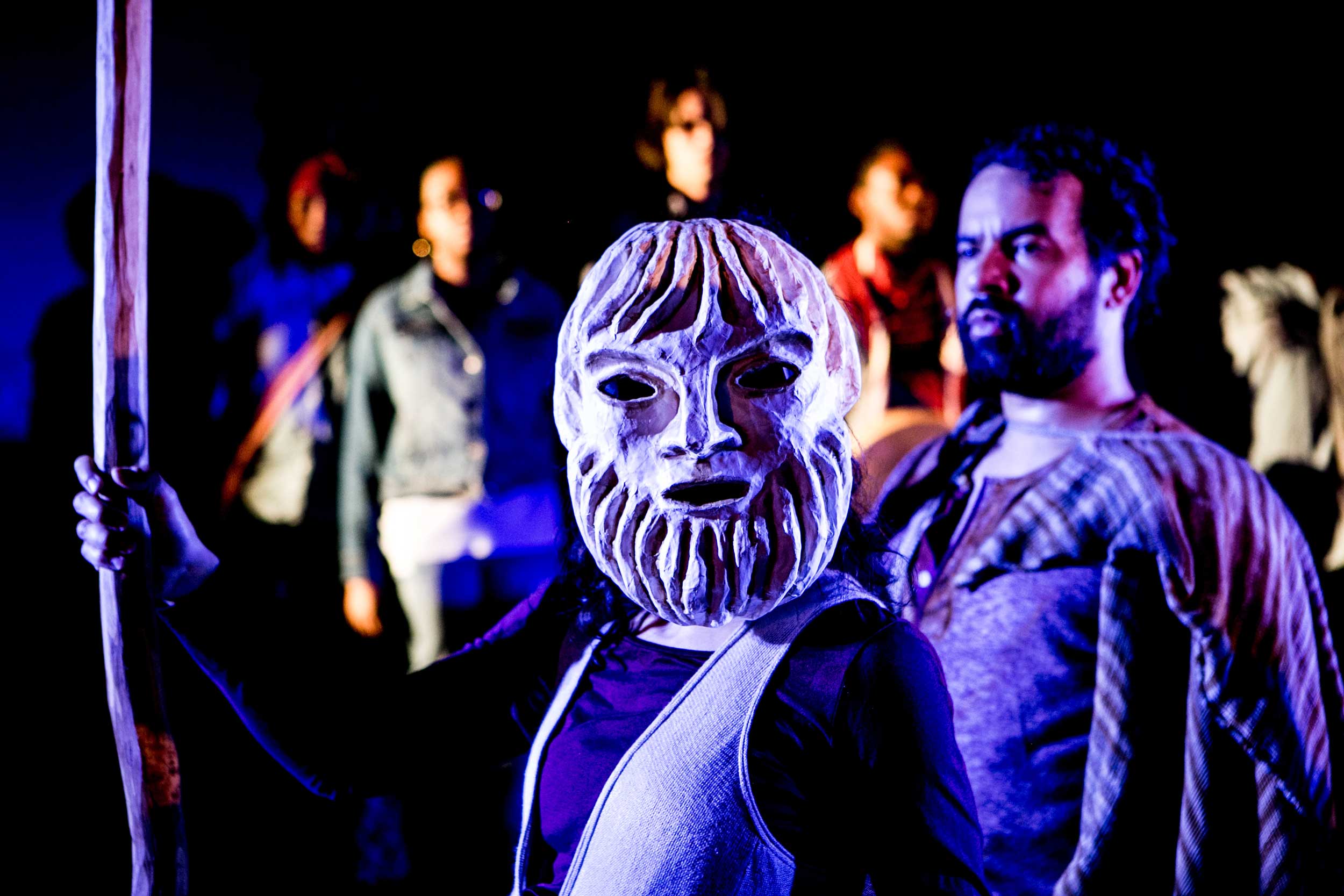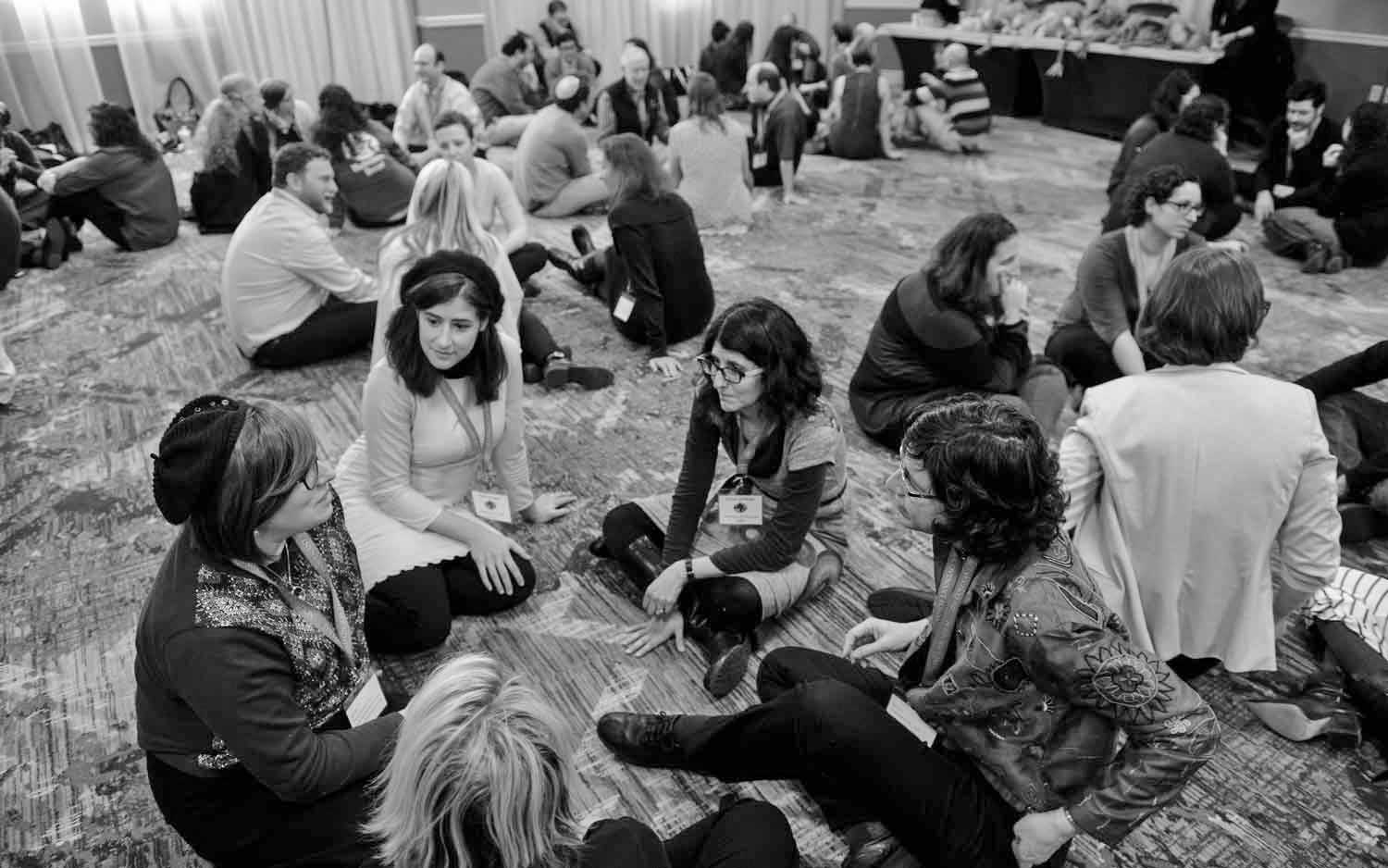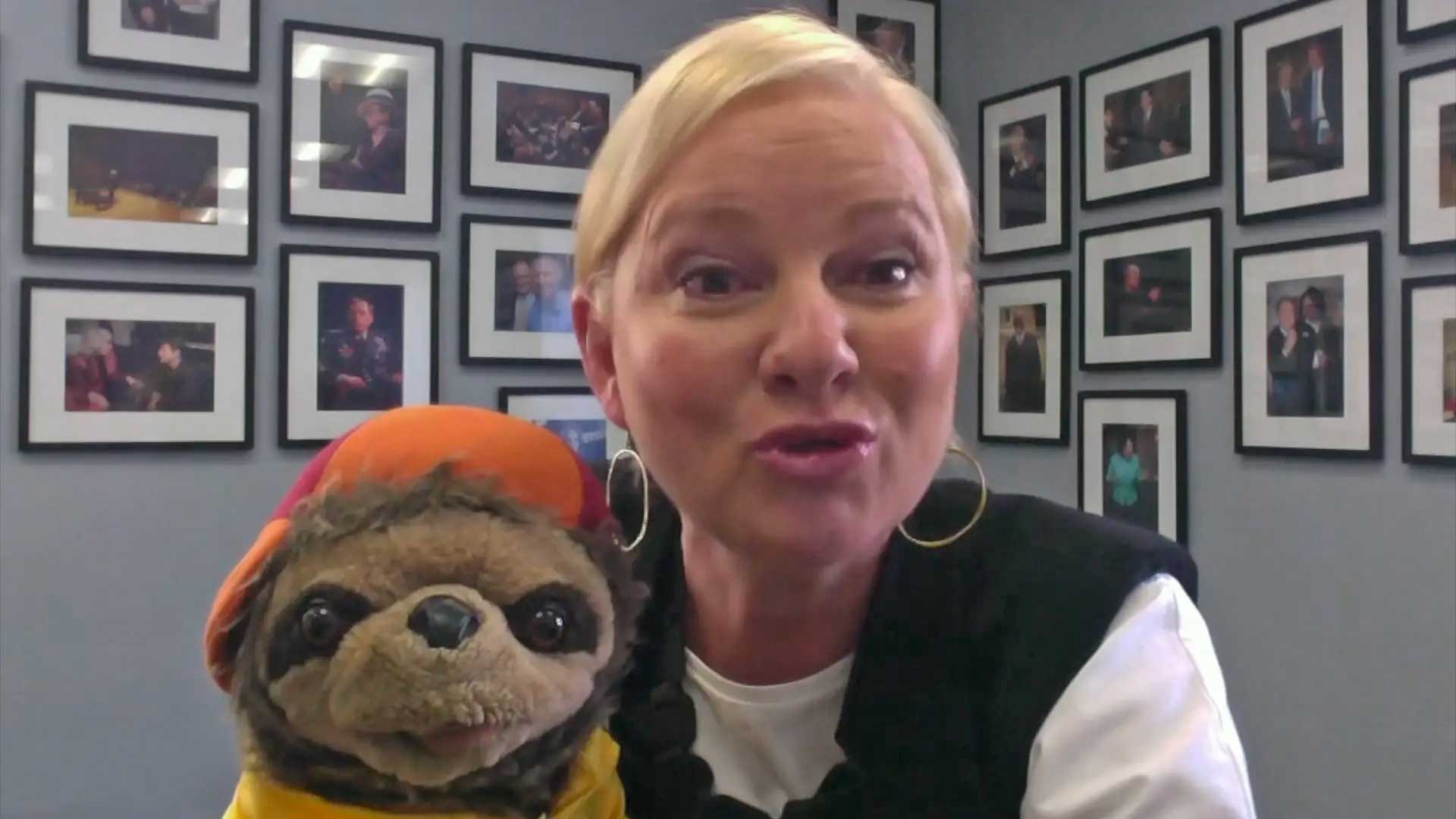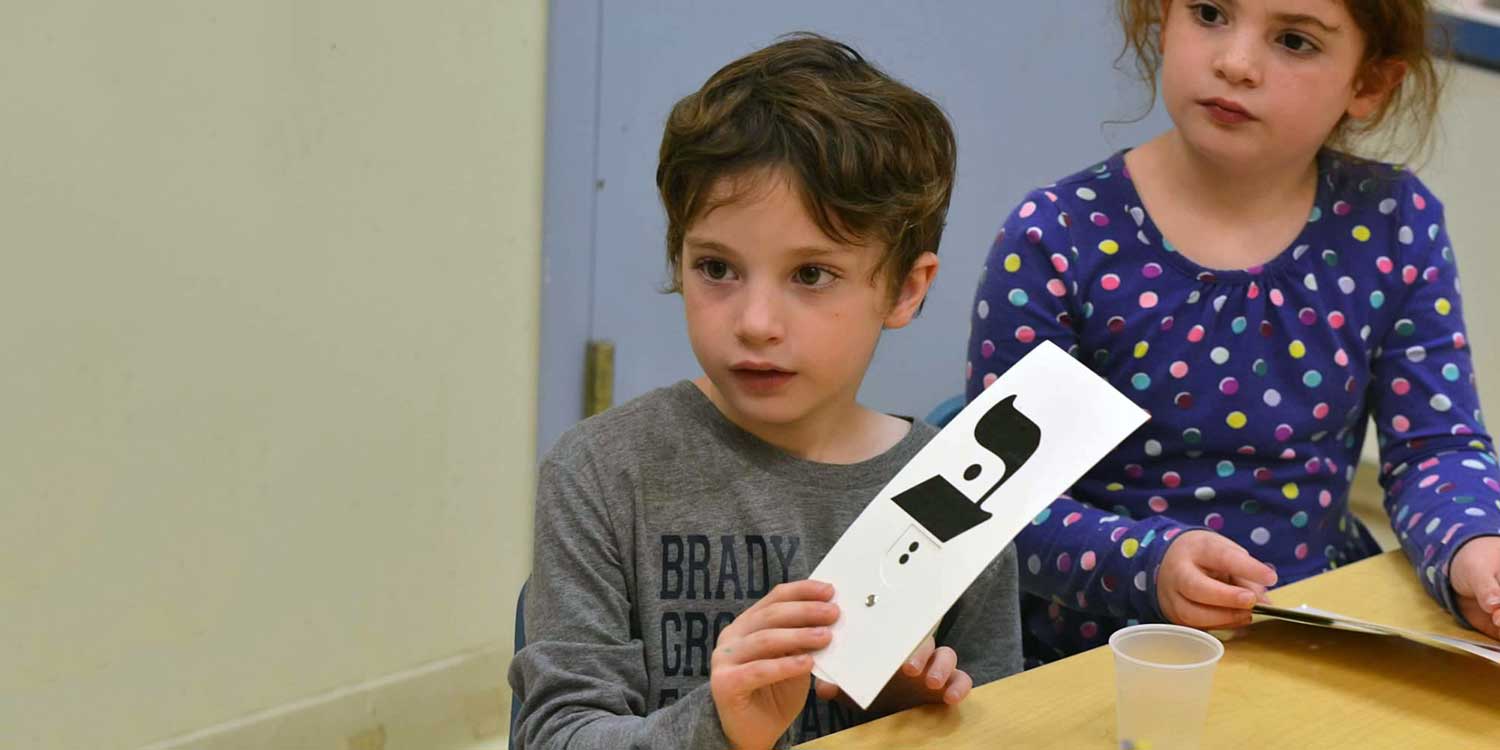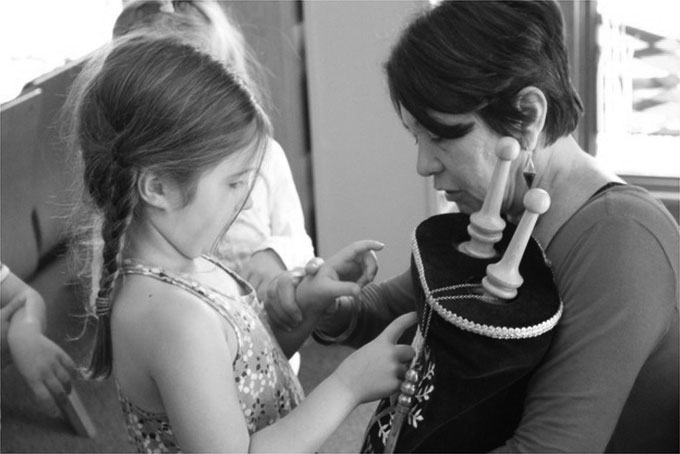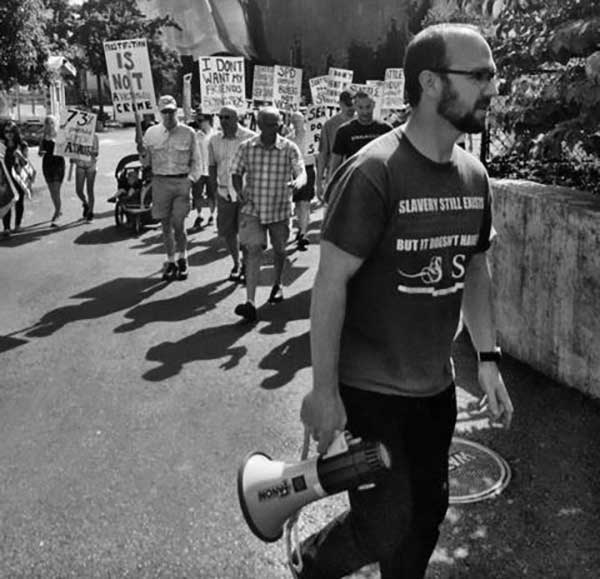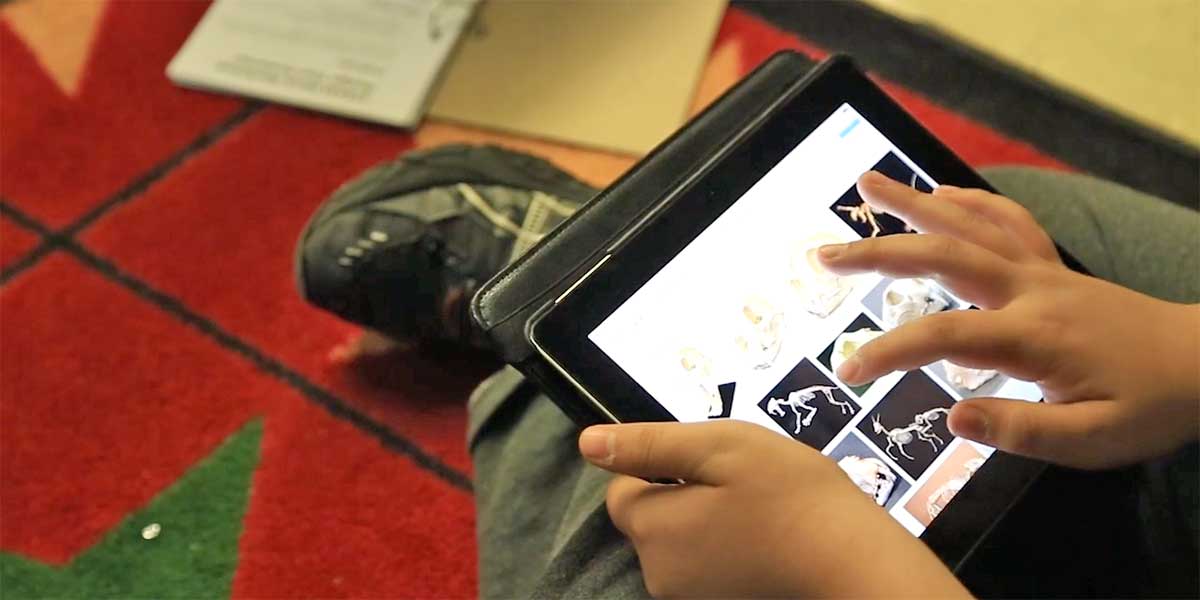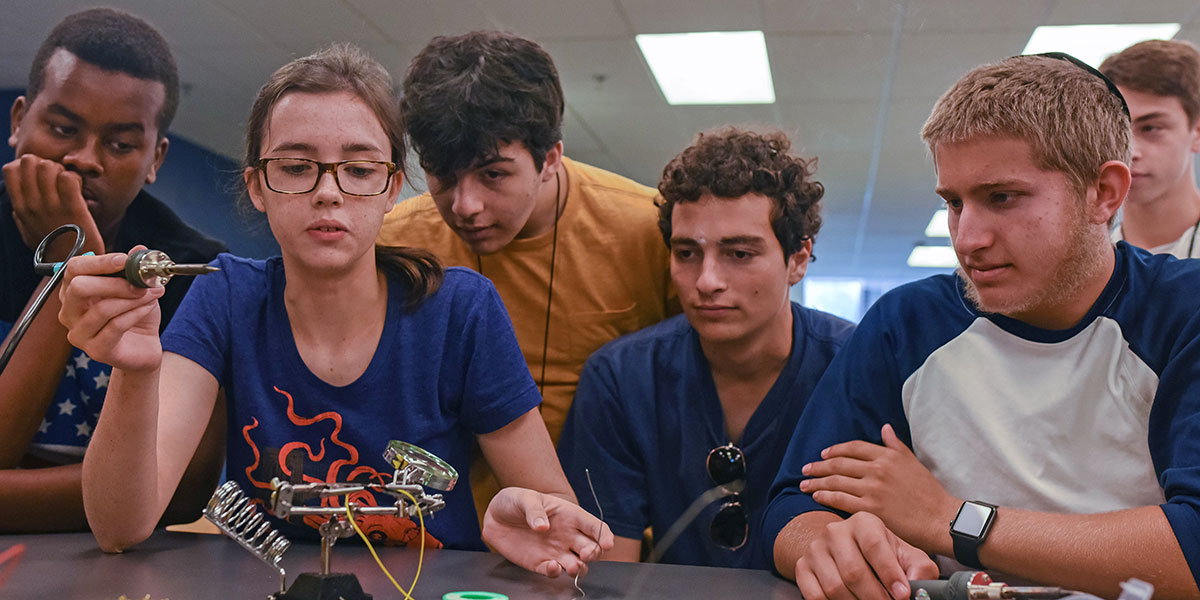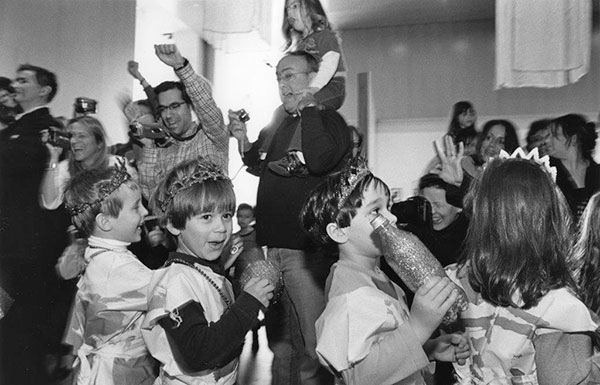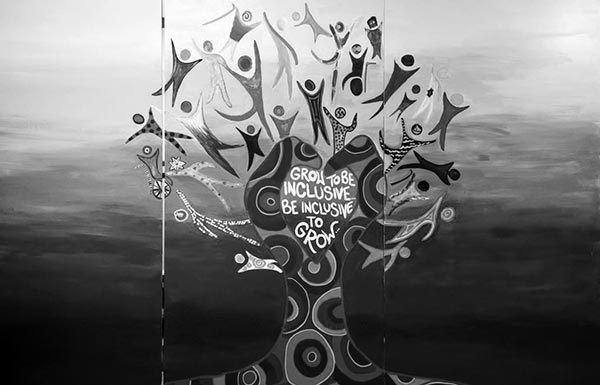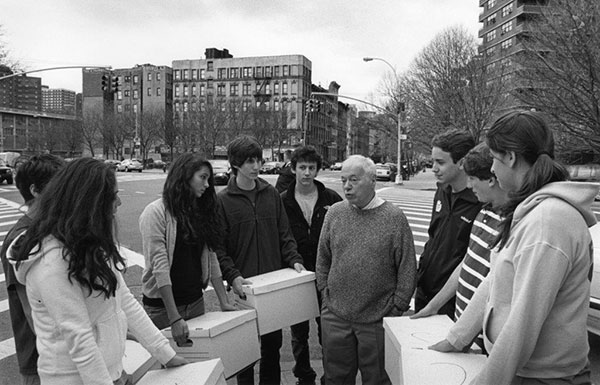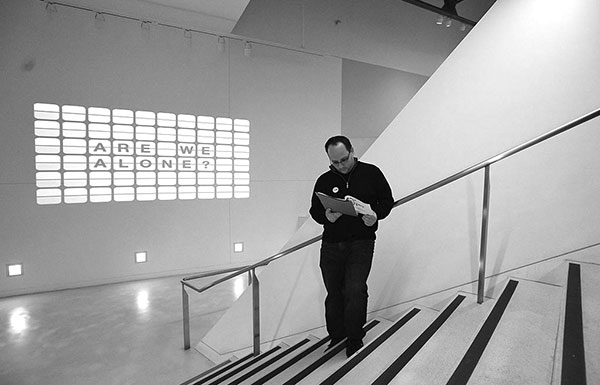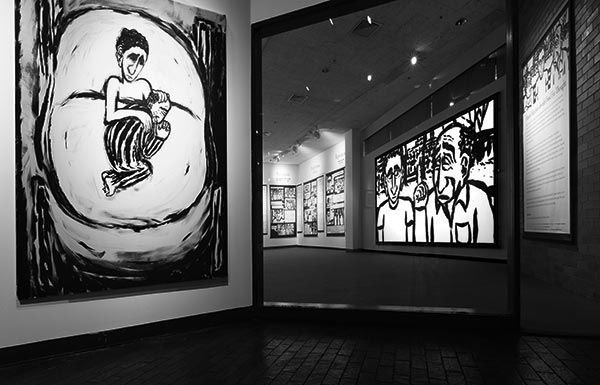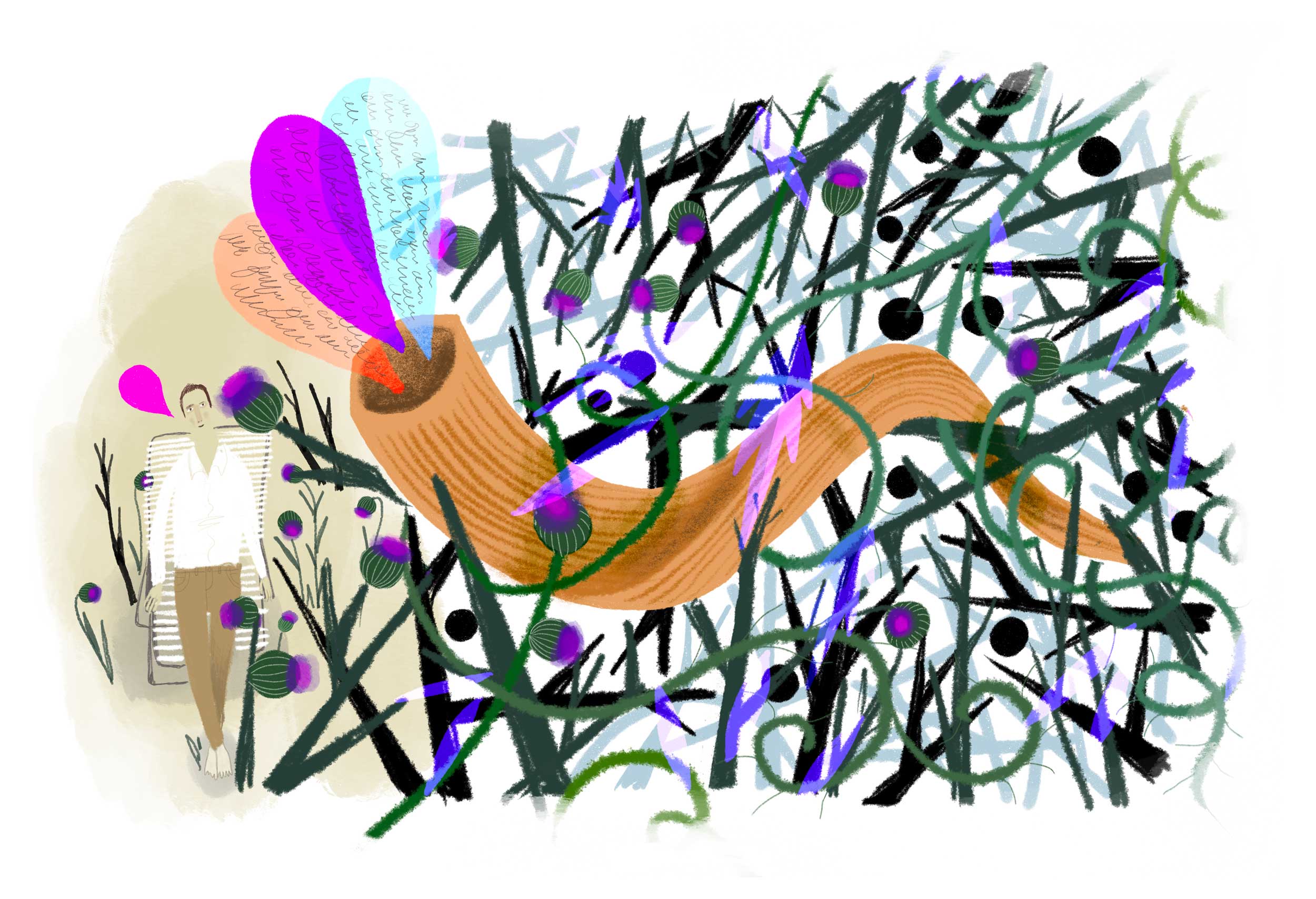
ARTICLE Greeting the New Year with Hope: Reflections from Leaders in Our Community
Caring. Standing up for others. Engaging with community. Being honest. Creating art. Acknowledging the bad along with the good. Being present. Being equitable. Listening.
Inspired by the film The Adaptable Mind, Tiffany Shlain’s 11-minute exploration of the skills humans need to flourish in today’s world, Sight Line asked five thought leaders—Elliot Cosgrove, Rabbi; Noa Kushner, Rabbi, Liz Lerman, artist; Eric Liu, civics activist; and Martin Shichtman, college professor—to share their thoughts on how one might greet the Jewish New Year with strength and conviction, in a time of such uncertainty and fear.
What follows below are the insights and reflections gleaned from those interviews.
Jump to: Elliot Cosgrove, Noa Kushner, Liz Lerman, Eric Liu, Martin Shichtman
Elliot Cosgrove
“This is what I call a bullhorn moment—it’s a moment redefining institutions, redefining the American Jewish community, and redefining rabbinic careers. But the good news is that the Jewish people, time and again, have reinvented themselves in response to circumstances not of their own choosing.”
Rabbi Elliot J. Cosgrove, PhD, is rabbi at Park Avenue Synagogue in Manhattan. He received his Masters of Hebrew Letters from American Jewish University, studied at the Schechter Institute of Judaic Studies in Jerusalem, and was ordained at The Jewish Theological Seminary. He received his doctorate in the history of Judaism from the University of Chicago Divinity School.
How has synagogue life been transformed over these last months?
Since March, we have turned everything online. If you think about a synagogue as a house of worship (beit tefilla), a house of learning (beit midrash), and a house of community (beit knesset), we have had to figure out how to do all those things virtually. They don’t teach you this in rabbinical school. And the landscape is ever-changing. We’re a New York congregation so we see the numbers that are on the rise nationally, and we remember the months of March and April. No one has a crystal ball. It’s all about scenario planning—you can hope for the best, but you need to expect the worst.
Is faith helpful to your congregants?
I think so. With so much uncertainty and so many unknowns, people are seeking ritual and connection to tradition and community. That could be having the refuge of Shabbat, having family dinners on Friday nights. That could be people signing up for opportunities to learn, or people connecting virtually to Friday night or Shabbat morning services.
And people are asking questions of faith. I think God has a lot of explaining right now. I’ve seen a severity and a quantity of loss over these few months that I’ve never seen before in my rabbinic career. There are a tremendous number of people in pain and seeking comfort through prayer, the words of tradition, and the presence of community. Even when answers elude us, the fact that we are not alone, nor the first to ask these questions, is a form of comfort.
Do you have a sense of what your message for the High Holy Days might be?
The task of my talks, the same as any congregational rabbi, is to speak with passion and relevance to the issues of the day, all the while bringing my congregation closer to tradition and closer to community. The themes of the holiday—whether one is looking globally, hayom harat olam, this is the day world was created, to the precariousness of life—are really brought into full relief by Covid. The theme of many prayers is about the fragility of life, a reminder of what’s actually important in our existence. These are the themes of the holidays every year but felt even more acutely this year. I’m well aware that the sermons I deliver will be delivered virtually. In my lifetime and in the lifetimes of my members, that is unprecedented, so I imagine I’ll be thinking about that. I am also aware that rabbis will be preaching on the cusp of an election cycle, and I am deeply concerned about the health of our democratic ideals and institutions.
Have you seen examples of resilience, an important theme of these days, in your congregation?
Everyone is coping with loss and with dreams deferred and denied. And everyone is seeking to accommodate themselves to a reality we didn’t count on. We’re all being called upon to draw from spiritual reserves in ways we never imagined. What is so unnerving about our moment, unlike other forms of loss, is that we are not yet in a time of healing; we are still in the midst of it. We don’t have the luxury of reflecting back on this experience; we don’t yet have a light at the end of the tunnel. I see signs of resilience, endurance, fortitude of spirit, patience, being able to constantly adjust and recalibrate our lens of vision. These are all the callings of the day.
Is there a prayer that particularly speaks to you in this moment?
I would have to say Unetane Tokef, a central prayer of the holidays in the musaf service. For me, it teaches that despite the fact that no one knows what the next days will bring, we are not immobilized, and teshuvah (repentance), t’fillah (prayer), and tzedakah (deeds of righteousness and giving) are all still well within our grasp. Even in this time of Covid, these three activities are things that every searching Jew can do.
How has your own sense of leadership evolved?
This is what I call a bullhorn moment—it’s a moment redefining institutions, redefining the American Jewish community, and redefining rabbinic careers. The muscle groups that rabbis are being called on to use—about community formation, pastoral care, and future models of synagogue membership—are all transforming, in real time. But the good news is that the Jewish people, time and again, have reinvented themselves in response to circumstances not of their own choosing. Please God, we’ll all look back on this chapter, and say that once again the Jewish people emerged changed and strengthened to meet the future.
Interviewed by Sandee Brawarsky for The Covenant Foundation
Noa Kushner
“The work of the holidays is to bring us together... even though we will be online and in different spaces, maybe reading things at different times. The holidays are going to be especially important for us to feel together and to feel like we can sanctify time, even when we are really all in between.”
Rabbi Noa Kushner founded The Kitchen in 2011 in response to friends who were looking for an informal, transformative Shabbat experience that they couldn’t find. Kushner was ordained by Hebrew Union College-Jewish Institute of Religion in 1998 and served as a Hillel Rabbi for both Sarah Lawrence College and Stanford University. Her written work appears in many publications including The Torah: A Women’s Commentary, and the Prayers of Awe series.
How is your work at The Kitchen evolving these days?
This is indeed a really different moment. And so even if I try to be a rabbi the way I was nine months ago, I won’t succeed. I’m trying to learn very fast what is needed now. How can we be of service?
The mission of the Kitchen remains the same. Our job is to try to connect heaven to earth and people to each other. There are some businesses that are out of business. Ours is more alive than ever. But the way in which we do it may change and is changing.
Have you moved most of your events online?
I like to say technology is like money. It can do a lot of good, and it can be very destructive.
We never used to do anything online. In San Francisco, this was an anomaly: You had to come, you had to show up.
Now, that is all shifting, and we are doing a lot online. One of the things we’re thinking about creating is an audio tour, like in a museum. Maybe you could use it during Elul or Yom Kippur afternoon: You would have a series of tracks and the idea would be, say, to go find a tree, and then press track one to hear a prayer, a prompt. It’s using technology, but the idea is that the participant could navigate it and hopefully find some spiritual depth in a way they might not be able to do otherwise.
How do you create the intimacy that the Kitchen is known for, online?
It is a new modality for us, but it’s the same premise we always had, which is if we are actually praying and if something is going on for us, we hope people will be able to tap into that. The biggest pitfall for us would be playing to the camera, and creating something artificial.
Back when we were praying together live, you could barely see us. We were in the middle of the room, encircled by people praying. I’m not used to people seeing my face, and to be honest I am not so comfortable with that. But at the same time, again, if this is what we have now, for me to not do that would not be living up to what is required in this time when we’re all distanced. I think intimacy is best created indirectly, especially with religion.
Are there new traditions you are envisioning for the Jewish holidays?
We are going to try an experiment. In Italy, there’s a beautiful tradition of “La Passeggiata.” One evening a week, people go out and stroll on the street. We’re having a Shabbat Passeggiata, with masks. We will have streets designated where people can walk and see one another face-to-face. No official program other than seeing one another. A riff on kabbalat panim. We may wear white or have some way to identify ourselves, and different hosts will sit out on their porches.
What will you be speaking about on Rosh Hashanah and Yom Kippur?
I’m going to quote my dad [Rabbi Lawrence Kushner] who says there are two kinds of rabbis: the ones who know what they’re doing before the holidays, and the ones who don’t. I could never be able to tell you this early!
However, the theme of midbar, or wilderness, that sense of being in the middle, of being in between and of being frightened and not knowing where it’s all going to end, I know that’s going to be a big piece of the larger backdrop to whatever it is that we are talking about. This country is in flux in a way that it hasn’t ever been in my lifetime. Certainly, race is a high priority, we’re all thinking a lot about it, racism is on our minds. I heard a Christian minister say that racism is a sin against God. That’s such a succinct way of teaching the religious objection to racism, and our principle of b’tzelem elohim, the understanding that we are each made in the image of God.
Because of our partnership with GLIDE [GLIDE is an inclusive, loving community, including Glide Memorial Church, which serves people among the most vulnerable in San Francisco], we have built a series of relationships and have been involved in on-the-ground volunteering. It has to do with being connected to their space and also being connected to the people and having our missions connected. When the latest racial questions arose, we had a natural place to have conversations. Our partnership is helping us to frame where it is we are going from here.
What part of the holiday service speaks most to you, in this moment?
Unetaneh Tokef. Who will live and who will die? This has never been more right in front of us than it is right now. No one is outside these stark realities. Some of us know it more than others.
Yom Kippur is a holiday where, in a safe way, we think about the fact that we will die, and perhaps we change accordingly. We are living through that moment right now; it’s not an exercise of the imagination.
Is being positive something that is important to you?
I want to be honest over being positive.
The work of the holidays is to bring us together, and in a way that is what is most primary and fundamental, just to come together, to feel that we are together. And I really will feel we will be, even though we will be online and in different spaces, maybe reading things at different times. The holidays are going to be especially important for us to feel together and to feel like we can sanctify time, even when we are really all in between.
Interviewed by Sandee Brawarsky for The Covenant Foundation
Liz Lerman
“Engaging our full selves includes our bodies. Just moving and being part of a group in song, or just bringing our arms up together is beautiful. People feel so much more connected. I’ve put my whole life into this, and it surprises me that it’s still unusual.”
Liz Lerman is an American choreographer and currently an institute professor at Arizona State University. Her style of dance-making is characterized by personal story, multi-generational casting, current events, scientific research, humor, public participation, and interdisciplinary collaboration. In 2005, she choreographed “Small Dances About Big Ideas,”which was commissioned by Harvard Law School. The piece uses motion, sound, and characters to portray humanity’s response—or non-response—to genocide. She received a Covenant Foundation grant to tour the piece across the country.
What is on your mind these days?
I’m thinking deeply about equity and justice and what my role is in bending the world in that direction. In all of my conversations, I bring forward my Jewish spiritual life. I try to speak from experience, not authority; then beautiful things can happen.
I believe that in Judaism we form new relationships with the past, if we are lucky. So much of what we are fighting over in the streets is our histories and how they impact the present; the retelling of our Jewish stories along with fresh commentary is a way of dealing with the implications of the past.
Can dance be a healing process?
Absolutely. Engaging our full selves includes our bodies. Just moving and being part of a group in song, or just bringing our arms up together is beautiful. People feel so much more connected. I’ve put my whole life into this, and it surprises me that it’s still unusual.
People are more fully themselves when engaging in healing or in being in relationship with others. The questions are not just their own. Those acts help heal the inner soul too.
I understand that Shehecheyanu is your favorite prayer.
I first started to bring Shehecheyanu into multi-cultural and multi-religious settings—which are most of the settings I’m in—in the 1990s, talking about how identity and different cultural forms play out on stage. I would introduce myself with the Shehecheyanu and first translated it as we learned it, thanking God for granting us life, sustaining us, and giving us structure, and helping us reach this day. Then I would retranslate it for artists: Isn’t it amazing that given our histories, that we should be here at this moment, right now, together?
What kind of work are you doing with synagogues?
This year, I will work with Temple Micah in the afternoon of Yom Kippur. The place is usually packed then and everyone knows that’s the time when we’ll use our bodies. This year, we’ll try it virtually, with everyone in their homes. Preparation begins in Elul, when Rabbi Daniel Zemel puts forth a question and people send their personal stories back. The rabbi also selects a few congregants to help me make the dance. It is really an eclectic group of all ages. We look through the stories and turn them into a dance that will be taught and then set to a prayer that the cantor selects. Again, the dance and the moving holds multiple purposes, bringing us together, hearing the stories in a new way, and helping us get through the long day that is Yom Kippur.
How does this moment in America relate to your preparation for the High Holidays?
I want to talk about Ibram Kendi’s book, How to Be an Antiracist. I heard him say that you’re either in denial or confession, as white people. I found this useful. When I am in conversation with friends and these issues come up, rather than going into denial, it’s better—according to my understanding of Kendi—to jump to the other side. Do I need to confess? What I have found powerful is that this forces a deeper reflection on what we mean by apology. A lifetime of observing Yom Kippur has given us rehearsal; we spend weeks preparing and thinking about our year and our actions, about ourselves and our community. As Jews, we have this very compelling practice of atonement. You don’t get off easy. Confession, as I have come to understand it as a Jewish concept, is bigger and deeper and more demanding than mere apology.
Where is God in all of this?
I think God is an example of our extreme creativity. Trying to make space for people to recall their innate creative selves is Godlike for me. I am amazed and startled by people’s capacity to do this. My rabbi once said that God is most Godlike when creating. We are created in God’s image and we are most Godlike when we are creating. That is a sustaining thought.
Interviewed by Sandee Brawarsky for The Covenant Foundation
Eric Liu
“As citizens we are charged to repair and heal the community at whatever scale—neighborhood, city, or world. Citizenship is about remembering the weave of relationship and obligation that we are woven into. It’s about remembering that life in community isn’t just about rights for you; it’s equally about responsibilities to others.”
Eric Liu is the co-founder of Citizen University, a Seattle-based organization designed to reframe American citizenship as a moral and communal responsibility. The author of several books, including Become America: Civic Sermons on Love, Responsibility, and Democracy, Mr. Liu served as White House speechwriter for President Bill Clinton and later as the President’s deputy domestic policy adviser. Sight Line spoke with Mr. Liu at his home in Seattle.
At a moment of transformation in American life, you are recasting the idea of citizenship. What does citizenship mean to you beyond the legal construct?
Citizenship is a moral and spiritual question. At Citizen University, we have this broad conception of citizenship beyond papers and passports. It’s an ethical notion. As citizens we are charged to repair and heal the community at whatever scale—neighborhood, city, or world. I’m the son of Chinese immigrants. That has certainly shaped my sense that citizenship is about remembering the weave of relationship and obligation that we are woven into. It’s about remembering that life in community isn’t just about rights for you; it’s equally about responsibilities to others.
You’ve talked about citizenship as a “civic religion.” Can you say more about this concept?
The United States is a society bound together by a set of ideas and ideals, meant to be perpetually contested and argued. This is the foundation of our civic spirit, or civic religion. This concept is made visible in one of our signature programs: Civic Saturdays. These events are a civic analogue to faith gatherings, with all the elements of such a gathering. In addition to song and poetry, we turn to a stranger next to us, get to know them, then look at a piece of civic scripture, which provides the anchor for the civic sermon that will follow.
What kinds of texts would qualify as “civic scripture?”
The texts vary depending on the community, but might include the Constitution, or Section 1 of the 14th amendment (ensuring citizenship rights for the formerly enslaved—and anyone else born or naturalized here—and equal protection of the laws for all). It might include speeches or remarks by John Lewis, or Jack Skirball, who dedicated himself to the fusion of American ideals and Jewish life.
For Jewish communities, classic texts like the Talmud help guide decisions by evoking ancient moral concepts and codes, according to which we might live.
The Talmudic approach to interpreting and debating the meaning of core texts has influenced our work at Citizen University. We use texts that capture part of America’s original compact: equal protection under the law; everyone being equal in dignity, voice, and capacity to participate in self-government. In the U.S. we are blessed and burdened by having such a set of promises. We want to live up to, and not betray, this promise. That means taking the words seriously. Struggling to make the dream a reality was what animated several founding moments of our country, from the original founding to Reconstruction and the Civil Rights Era. Now, perhaps, we are at another founding moment. And we can find our way forward by returning to texts that express our highest aspirations of civic spirit.
You also talk about the value of “power,” and how individuals should understand and activate it more effectively.
At Citizen University we boil this issue down to a simple, but not simplistic, equation: power + character = citizenship. To be a contributor as a citizen means to be both literate and fluent in power; to understand what it is and what it isn’t; who wields it and why. But if all one has is fluency in power, wielding force and having people do what you’ll have them do, untethered to any moral core…then all you become is a finely skilled sociopath. So you must couple that literacy in civic power with a grounding in civic character—how to live constructively in community.
Civic character is expressed through our connection with words, something central to Jewish education—to live among others bound together by the word; to contest the meaning of the word; and to understand that the process of contesting and reckoning with those words is the field within which we cultivate our character.
Your work also celebrates the value of listening, whether it’s for that “still, small voice” of God, or for the wisdom and humanity of the stranger we meet on the street.
Listening is one of most underdeveloped capacities in American civic life today. Everything in our culture, from media to social media to celebrity, incentivizes speaking and transmission, and offers few rewards in the receiving. And yet in every setting related to learning, as well as in lawmaking and self-government, it can’t only be one-way transmission. Truly listening in a humanizing way to someone else’s experiences shows that the stranger next to you is not really a stranger.
What programs are you running that look to inspire today’s youth, and offer ways of making a difference?
We are rolling out a new program this year, a “civic confirmation” for young people guided by elders, and culminating in a rite of passage around civic faith. We are working closely with a diverse group of elders to learn how teachers can create the spaces within which we can change hearts and minds, and the rituals that will help us create an arc of civic, spiritual, and moral formation. Since classes are closed right now, our task as educators is to help develop those spaces. One of the lessons is that each of us, properly understood, is an educator, and everything we do, intentionally or not, is an act of teaching.
In what ways can educators actively model what it means to teach and, by teaching, repair the world?
We can’t be teaching every waking second, but we can be aware of the choices we make in every moment, and those small choices contribute to the repair of the world. For instance, when you take your kid for a walk, do you spend the time scrolling on your phone? Or do you ask them what they notice? If they notice an empty lot, ask them why it’s been empty for so long. If the bus takes a long time to come, ask them why buses take so long in certain parts of town, and who gets to decide that. These small moments can awaken us, and awaken those around us into a kind of civic mindfulness. It’s a corrective to the hyper-individual narrative in our culture that says everything is always about us, now, here. We need a counter-culture that helps us be aware that we are not alone, that we are connected to a past and a future, and that we have obligations greater than our own desires.
Interviewed by Dan Schifrin for The Covenant Foundation
Martin Shichtman
“In times of great trauma, great hatred often grows. It's hard to be kind when you’re anxious and worried about yourself and your family. It’s easy to be manipulated by malevolent forces. I will urge my students to be kind and to practice every-day acts of kindness, which for some might be a simple as putting on a mask to protect others.”
Martin B. Shichtman is Director of the Center for Jewish Studies and Professor of English Language and Literature at Eastern Michigan University. He has been a fellow at the United States Holocaust Memorial Museum and at Brandeis University's Schusterman Institute for Israel Studies and is co-author of Cinematic Illuminations: The Middle Ages on Film (Johns Hopkins University Press, 2009) and King Arthur and the Myth of History (University of Florida Press, 2004). Dr. Shichtman received a Covenant Ignition Grant in 2012.
As you begin to prepare for a new semester in a changed world, what are you thinking about?
I want my students to understand that it is OK for them to think that this situation is really difficult. Isolation is painful. They’re at an age when socialization is so important. In many ways, higher education is not only about learning classroom materials, it’s about socializing, living, loving, and friendships. There are memes on the internet suggesting that young people should toughen up, because this isn’t as hard as what other generations have faced, but I want them to know this is hard, and it’s okay to feel that way.
What are some lessons that you might impart to your students, given the challenges of the Covid-19 pandemic?
In the fall semester, I will be teaching a Culture and Holocaust class, in which we study the idea that in times of great trauma, great hatred often grows. I want my students to be hypervigilant about the kind of fear-mongering discourse that we’re bound to encounter, and how these discourses can move them toward hatred. It’s going to be hard to be kind when you’re alone and anxious and worried about yourself and worried about your children and your parents, as you watch the number of deaths escalate. It’s easy to be manipulated by malevolent forces. But I will urge my students to be kind and to practice every-day acts of kindness, which for some might be a simple as putting on a mask to protect others.
But I also want to impart that we’re not helpless. We need to think about our roles in caring for ourselves, in caring for others, and we need to stand up for each other, in ways that maybe we hadn’t before. We need to stand up for the weakest and most vulnerable members of our society. Even as it becomes beneficial for some politicians to speak hate, we need to stand up against that. The willingness of Americans to stand up for each other is enormously heartening, as we witnessed with the myriad Black Lives Matter demonstrations. We are responsible for each other, for repairing the world, even when we are alone and afraid.
We’re going to beat this a lot faster than we beat other “plagues,” and it will be less dangerous than those experiences were. Our science and determination is better now and if there’s any hope, there’s that.
What are you looking forward to?
I am hoping to take a contingent of university students from Michigan to Israel in May 2021. Sure, if necessary, we could do the trip on Zoom, but it will never compare to the visceral experience of being in Jerusalem and walking those streets. So even if the trip can’t happen next May, we will do it the following year. I am looking forward to having back the ability to travel and to learn and teach face-to-face. And that's going to come back. It may not be in the next 6 months, but I genuinely believe that we will get that back.
Interviewed by Adina Kay-Gross for The Covenant Foundation
